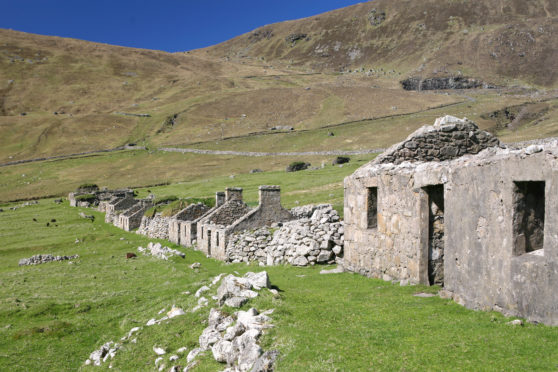Islands minster Paul Wheelhouse said some island communities face becoming “the next St Kilda” because they are losing so many young people.
The admission came as the Scottish Government came under fire for producing a “toothless” flagship plan to regenerate islands struggling with depopulation.
At a meeting of Holyrood’s Rural Economy committee, the National Islands Plan was attacked for failing to have meaningful targets and objectives for improving lives on Scotland’s islands.
Mr Wheelhouse was also unable to give a precise figure when asked how much it would cost to implement the 70-page plan launched last month.
The plan has been produced to tackle issues such as declining population and the severe transport challenges faced in the country’s most remote areas.
Quizzed by MSPs on depopulation, Mr Wheelhouse made the comparison with St Kilda, the isolated archipelago that was evacuated by islanders in 1930.
Mr Wheelhouse revealed that when consulting on the plan, some islands “were actually worried they are going to be the next St Kilda, so that’s pretty dramatic language”.
He added: “It is actually a real threat they face, because they have no young people or they have lost young people.
“So how do we help those islands at this most critical point in their history where they are at a tipping point where they start to lose essential services because they cannot staff them any longer?”
The Scottish Government hopes its National Islands Plan will help to answer that question, but it was criticised by North East Lib Dem MSP Mike Rumbles, who claimed it was a “strategy” rather than a plan and lacked “smart objectives”.
His comments were mirrored in submissions made to the committee by local authorities and other bodies.
The Mull and Iona Community Trust answered “no” when asked if the plan set out a clear direction and practical approach to delivering objectives.
The Trust complained that the plan appeared to be “toothless” and feared it would become a “tick box exercise”.
Orkney Council said there were “no defined outcome targets, timescales or measurement of success”.
Western Isles Council said there was a lack of post-Brexit planning.
The scale of the issue for some island communities was laid bare in worrying projections published in 2018 by the National Records of Scotland (NRS).
They showed the Western Isles is expected to experience a 4.8% drop in its population by 2026 – the largest decline in Scotland.
And those predictions followed grim forecasts by Audit Scotland which indicated the islands could lose 14% of their people over the next 20 years, and could also be hit by a 28% fall in the number of children.
Projections for Orkney and Shetland were more positive.
At Holyrood yesterday, committee convener Edward Mountain also put it to Mr Wheelhouse that there was “no definitive cost” for the plan the Scottish Government has put in place in an effort to address the looming “depopulation crisis”.
“We have not got to a precise figure yet to answer your question,” the minister replied, adding that a figure would come later.
On the question of objectives, Mr Wheelhouse said data did not exist to provide progress indicators in some cases, adding work would be done on targets.
